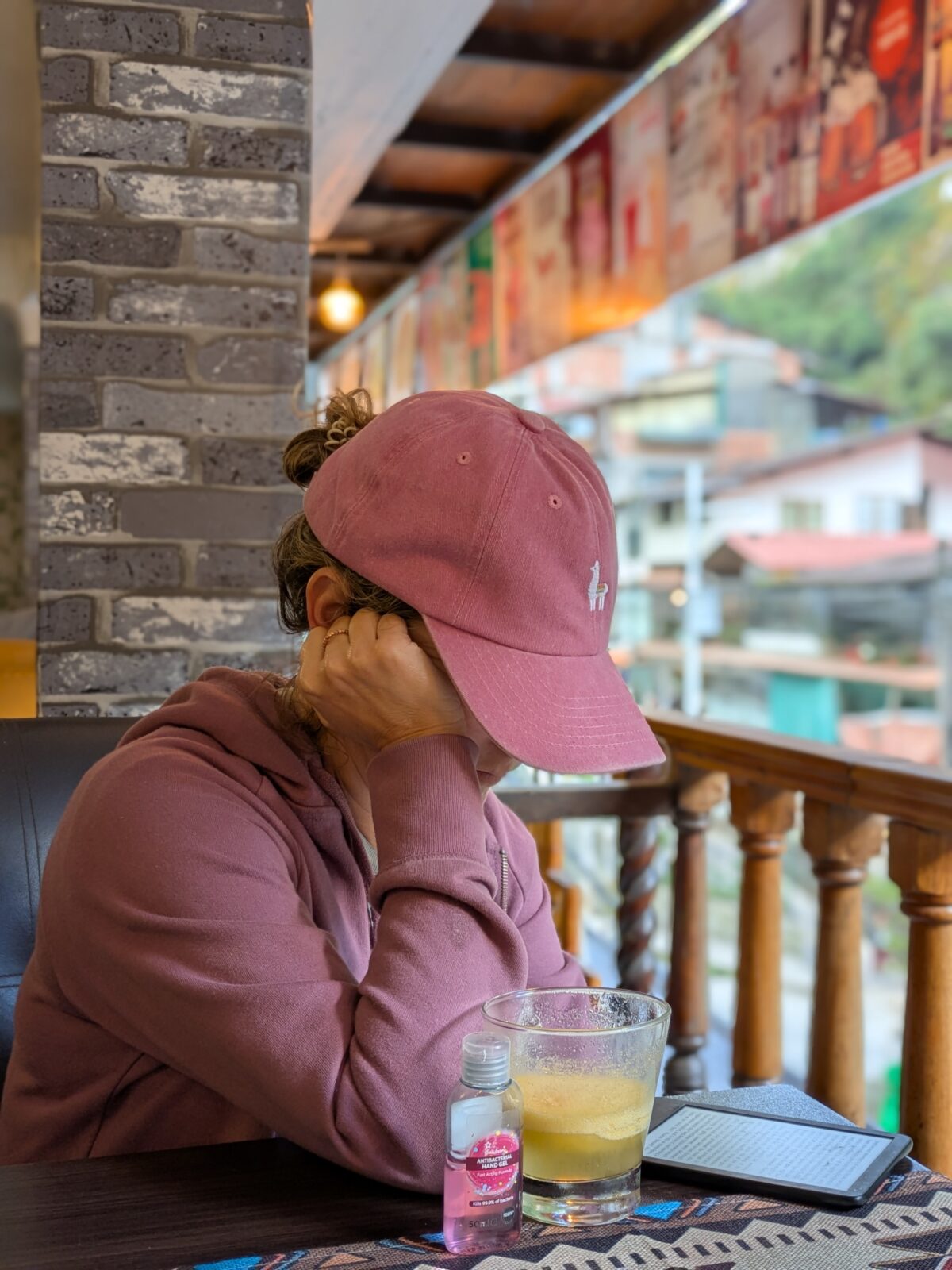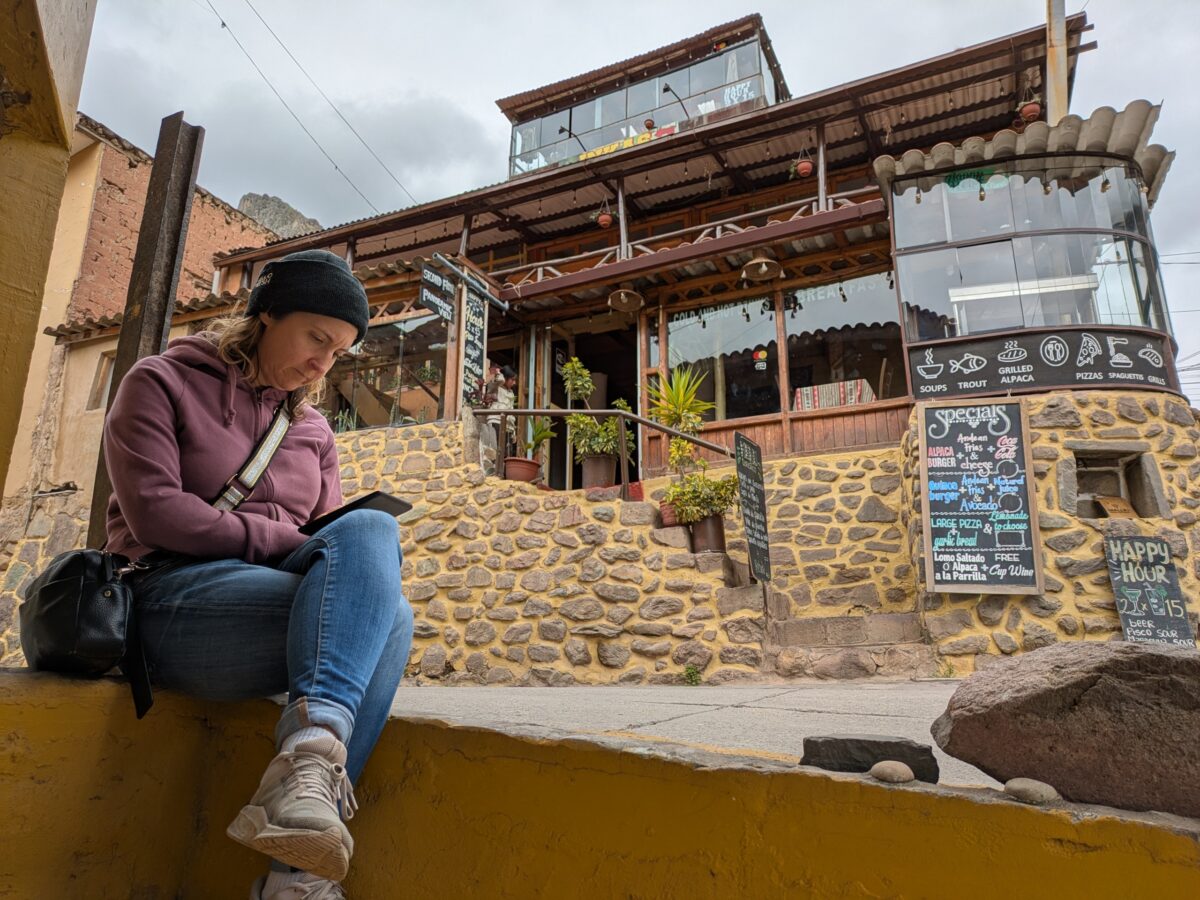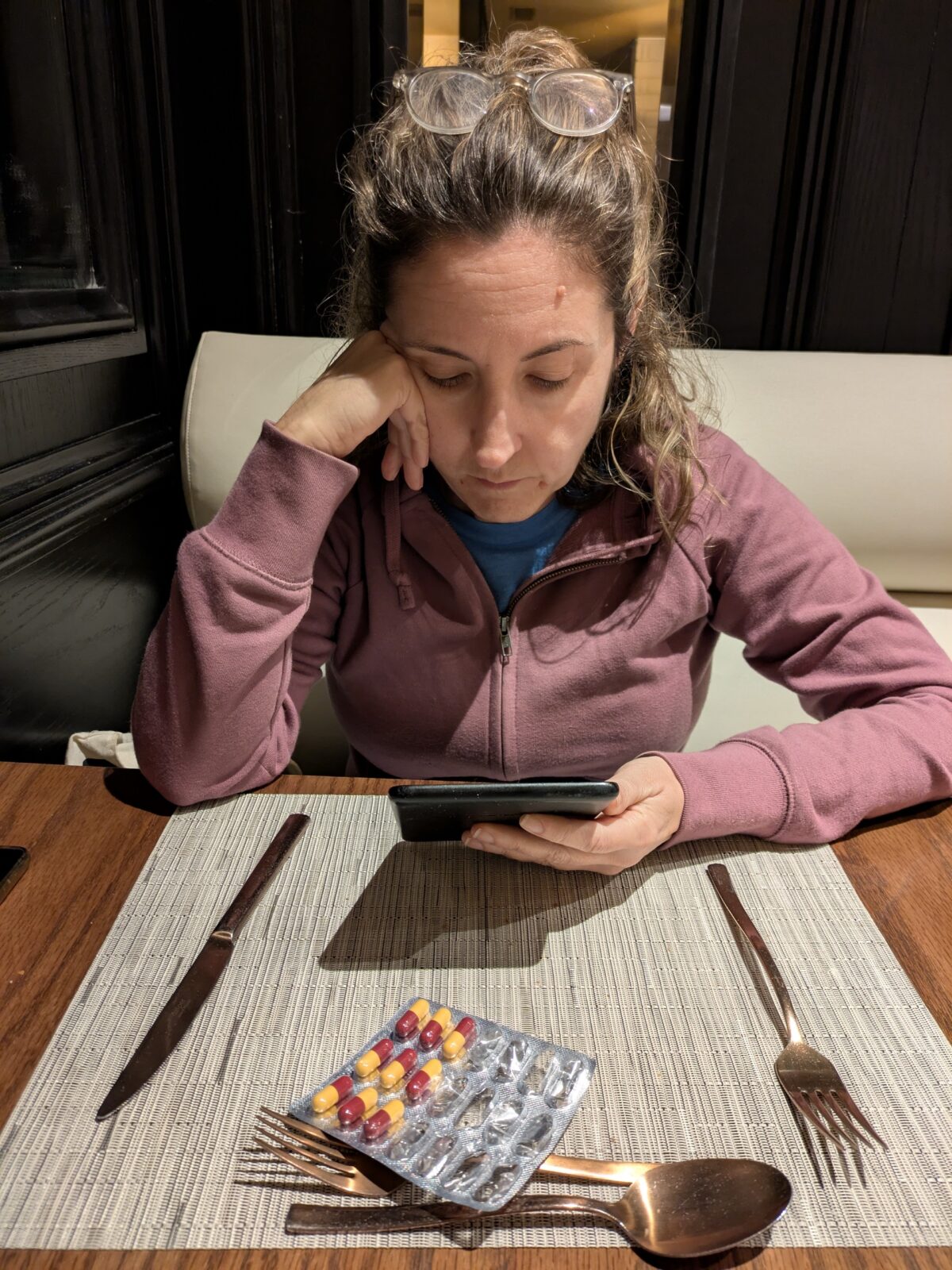Re-read while on holiday
BOOK LOVERS by Emily Henry
Re-read while on holiday
BEACH READ by Emily Henry
Re-red while sick
ME AND YOU ON VACATION by Emily Henry
Re-read while sick
RIVER OF THE GODS by Candice Millard
Okay this one is really interesting. It just shows you that some people are miles ahead of their time. It’s about the identification of the source of the Nile, a topic of great interest in the west since Roman times, during which it a commonplace to call anything challenging ‘as difficult as to find the source of the Nile’. Several legions died trying. The mystery was eventually solved by John Speke. However, the hero of the tale is one Richard Burton.
This remarkable man, while British on paper was brought up all over Europe. (Big props to Burton as a schoolboy, who observed: ‘the sun never sets on the British Empire, but then it never rises either’). He grew up to be incredible at languages, speaking 25 well, and many dialetics. He had a system in which he could acquire a new language in two months, and never seemed to understand why others found it hard (!) He was the first Western person to go on the Haaj, managing to disguise himself as a Muslim (incredibly impressive, also very problematic).
He got the commission to try and find the Nile, though the voyage was underfunded, and at the last minute added Speke. So rough was Africa on European biology that people kept dying between agreeing to join and actually going. Speke managed to stay alive. Totally different to Burton, he was an aristocrat who spoke one language (English), and that not well. His main interest in going into the interior was, get this, hunting, so he could have specimens for the private museum he planned for his estate. It’s beyond satire. To give a flavour of the man, he was offered at one point the chance to dress as an Arab to make one section of the journey safer, but declined because he thought the Arabs were just trying to demean him by making him dress like them. Burton outright LOL-ed at the idea that Arabs would think themselves inferior to the English.
The two men and their army of porters endured many terrible things, starvation, fevers (a LOT of them), attack (in Burton’s case a spear through the mouth), etc. To give Speke his due, he was tough as hell. Once he was cover in beetles and tried to get one out of his ear with a knife, which ended up leaving him deaf. Here is Burton describing one incident, saying that he had set out to do or die, and: ‘I had done my best, and now nothing appeared to remain for me but to die as well.’
At the end of the expedition they were able to more or less figure that the source was in one of three lakes they had found (i.e., been led to by locals). One of these lakes only Speke had been to, Burton being too unwell. Speke became convinced this was the source. Getting back to England before Burton, he controlled the narrative, and the posh people in the Royal Geographic decided this posh man was clearly a better choice to lead the second Expedition than Burton. He was obviously heartbroken. Speke went back, established it was the lake he had seen, and then renamed it from Nyanza to Lake Victoria:
“Burton had found the renaming of the Nyanza not just presumptuous but preposterous: ‘My views . . . About retaining native nomenclature have ever been fixed, and of the strongest. Nothing can be so absurd as to impose English names on any part, but especially upon places in the remote interior parts of Africa’”
How contemporary is this man?!? Side bar, here he is on the Indians: Writing that Indians would soon decide that ‘the English are not brave, nor clever, no generous, not civilized, nor anything but surpassing rogues.’
You can see where he was not popular with the upper classes. Burton went on to variety of minor civil service roles while Speke had a fatal hunting accident that sounds a lot like a suicide. He had told Burton years before that “being tired of life he had come to be killed in Africa.”
Burton went on to translate the Kama Sutra (!), which made him a rich man. I loved this: “I have struggled for forty-seven years, distinguishing myself honourably in every way I possibly could. I never had a compliment nor a thank you nor a single farthing. I translate a doubtful book in my old age, and immeditaely make sixteen thousand guineas. Now that I know the tastes of England, we need never be without money.”
While Speke has the honour of identifying the source, Burton is the one about home multiple biographies are written; poor Speke has one monograph from over a hundred years ago. So I guess there’s justice in that somewhere.
YOU DREAMED OF EMPIRES by Alvaro Enrigue
This is a fictional account of the first meeting of Cortes and Moctezuma. I really enjoyed its effort to deeply imagine the Aztec empire. It is a book very much about daily life, e.g., how did the Spanish trim their toenails? But what I mostly liked was the freedom of the author, who brought a very contemporary voice to these historic figures. I can’t think when I’ve seen that before. Try this: “Inside each of us is a skull,” Enrigue writes, “and that’s all that will be left of us when we’re gone; thanks for your participation.”
We did get into slightly dicey territory at the end, when the author inserted himself in the present day into the story (snore) but overall I found it an unusual and interesting take on a famous moment in history.
I’LL BE GONE IN THE DARK by Michelle McNamara
This book is about a journalist’s fixation with a particular serial killer, the Golden State Killer. A very prolific offender, he committed 13 murders and more than 50 rapes over about 15 years. Curiously, despite this, he was not especially famous. This journalist, Michelle McNamara, spent a large amount of time with people she met on internet message boards, and with the police, researching the case and trying to solve it, and this is her account of her fixation. In the end, he was not caught by any of this work, but by genealogical DNA. She was important not because she solved it but because she drove interest in it, even giving him the name the Golden State Killer.
Two things struck me about this book, the first being how awful it is that in fact serial murders are completely capable of stopping. This one did. Their crimes are not compulsions, but choices. This makes it much worse. In this case, as the offender was a police officer, they think he stopped when he became aware how powerful DNA was.
The second thing was that the book was not finished by McNamara. She died part way through, in her sleep, from an undiagnosed heart condition mixed with prescription medication. It was sad to see the second author trying to find a way to end the book from her scribbled notes. It reminds you you do not know the day or the hour. In any case, the Golden State Killer was caught a few months later.
SUMMER OF BLOOD by Dan Jones
Here is a piece of non-fiction about the Peasant’s Revolt in 1381. I’d never heard of it. Apparently after the plague, there were so few working people that they were able to up their day rates, which the nobles didn’t like. Hilariously, they therefore tried to fix prices at the pre-Plague rates. In addition to this great idea, they were also busy trying to rule France by means of an expensive war, and decided that peasants should accept the introduction of taxation to pay for it.
This did not go down well. Inspired by a priest called John Ball, who was basically miles ahead of Marx with the communism (and from who the famous line “When Adam delved and Even span, who then was the gentleman?” comes), the peasants marched on London, killed a lot of nobles who deserved it (and some who potentially did not), and took the Tower of London. Richard II, then fourteen, granted them all their demands, and the revolt started to ease. So then he set up vindictive kangaroo courts and had thousands of peasants executed in revenge. Rich people got to rich I guess.
THE LAST DAYS OF THE INCAS by Kim McQuarrie
Due to being an insufferable swot I always like to read a book from a country I am in when I am in it. Thus THE LAST DAYS OF THE INCAS by Kim MacQuarrie while I was in Peru. This was some hair-raising non-fiction. I knew very little about South American colonialism, and now I know a little more all I can say is YIKES. These sixteenth century Spanish were intense. However so also were the Incas.
Basically the tiny amount of contact the Incas had had with Europeans had spread smallpox, which the Inca Emporer (Sapa Inca) died of. This triggered a civil war between two of his sons, and when I say a civil war, I mean the winner (Atahulpa) aimed to exterminate his brothers whole blood line down to hanging the unborn babies BY THEIR UMBILICAL CORDS. Then the Spanish turn up. There were only 163 of them, and Atahulpa had a victorious army in the tens of thousands. So you can see where he was not worried. He went to meet them the day after he found out his brother was dead, so he was really finally the Sapa. He was mostly just interested in seeing the horses, as they did not exist in his Empire and he saw how valuable they could be. They immediately kidnap him. Poor guy: one day as the Sapa. So unconcerned was he about the capacity of the Spanish (who he thought were strange savages, which is of course exactly what they thought of him) that from his prison he ordered the continued execution of senior figures in the Inca opposition, instead of – for example – asking them to rise up and save him. You can see where he is coming from: there are only 163 of them! But what he did not bargain on was that they had iron. I guess I did not appreciate the importance of iron, but it meant that their armour made them basically invincible, especially with the horses.
It just gets worse and sadder from there on all sides. These Spanish were not representatives of the Crown but really just independent entrepreneurs, who risked their lives on the chance there was gold somewhere out there in places they did not even know existed yet. Pizarro, the main one, grew up really poor, as did most of the others. I guess you need to be really desperate to get on one of those ships. I got the impression that these were some seriously traumatized people before they even left Spain, and it went downhill from there.
There are about a million more things I learnt, like how the Incas kept everything the Sapa touched (eg., left over food) and burnt it once a year, or how the Sapa executed a whole batallion once for flinching the first time they saw a horse, or how this poor 19 year old the Spanish put in place as a puppet emperor grew into a guerilla leader, or how his wife was tortured to death in public but shamed the Spanish by not saying a word, but anyway I guess you will just have to read it.
It was strange to read so much history while in a country. I had a coffee in a central square about which my only context was that 3000 Incas died defending it.
BASTARD OUT OF CAROLINA by Dorothy Allison
This novel is about a girl born to a 14 year old waitress. The waitress has a big family, who help her with child care, so it is a lot about that family. It is kind of an uplifting story of small town life, until the waitress marries a man who starts sexually abusing the child. The child eventually tells an aunt, so the mother removes them from the man; but then he ‘promises’ not to do it again, so they go back. The mother tries to make sure they are never alone together. Great solution! Then he rapes her really brutally, and the mother walks in on it. The child goes to hospital, but her mother DECIDES TO MOVE TO CALIFORNIA WITH THE MAN (!?!).
This just seems so awful as to not really be believable, but I’m sorry to tell you that apparently this is a lightly fictionalized version of the author’s life. To be fair, her mother never actually left her, but she did make them all live together even once she was aware of the ongoing abuse. He even gave her an STD, which left her permanently infertile. Sounds like a gruelling read, and it sort of was, but it also wasn’t, because I guess of the courage of the author, who has rebuilt her life with amazing courage. I learn from the Introduction that the book has been banned from schools on many occasions. I know that people who make sure bans like to claim they are protecting children, but I think we all know who this actually protects.
There was an interestng line to a character recently bereaved: Now you look like a Boatwright. Now you got the look. You’re as old as you’re ever gonna get, girl. This is the way you’ll look until you die.






